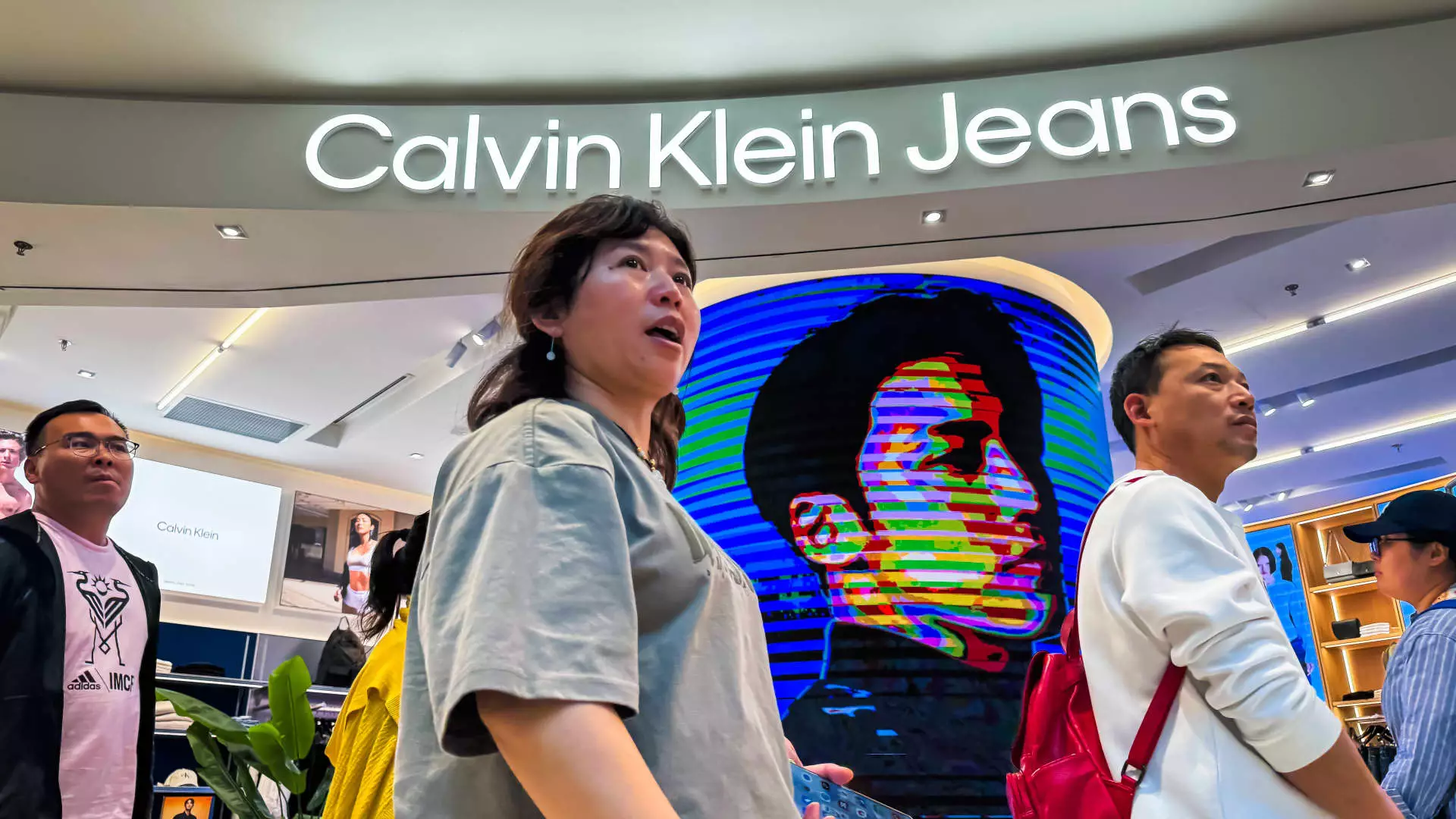In a worrying turn of events, the Chinese government has placed PVH Corp., the owner of the renowned Calvin Klein and Tommy Hilfiger brands, on its blacklist of “unreliable entities.” This move has raised alarms within the retail industry and among investors, as it highlights the growing tensions between China and the United States in the ongoing trade war. The ramifications of this blacklisting could prove disastrous, potentially forcing the company to shutter its stores and halt manufacturing operations in China, a market that has been integral to its business growth over the last two decades.
The designation of “unreliable entities” allows the Chinese government wide-ranging powers—including the ability to impose fines, restrict operations, and deny entry to employees—creating an uncertain environment for PVH. The timing of this announcement is particularly significant, coming shortly after President Donald Trump introduced additional tariffs on imports from China, marking an escalation in retaliatory measures from both nations. This backdrop underscores how the ongoing trade disputes can have a direct impact on businesses operating in both countries.
At the heart of this issue is China’s investigation into PVH, which began in September 2023. The investigation focused on allegations that the company has refused to source cotton from the Xinjiang region, a locality that has gained notoriety for its human rights abuses, particularly concerning the Uyghur population. This regional conflict adds another layer of complexity to the situation for PVH, as it must navigate its ethical responsibilities alongside its business imperatives.
Financially, PVH Corp. has significant exposure to the Chinese market, where it generated approximately 6% of sales and a remarkable 16% of its earnings before interest and taxes in 2023. However, its greater reliance lies in manufacturing, with 18% of its production linked to various factories throughout China. Should China choose to enforce its powers against PVH, the company could face severe operational disruptions, with potential layoffs and forced relocations of its workforce and executives.
As PVH grapples with the potential fallout from this blacklisting, industry analysts are suggesting that the company may need to recalibrate its strategy. The complexity of transitioning manufacturing to other countries while maintaining product quality and efficiency poses a formidable challenge. While PVH operates factories in over 30 nations, the specialized skills required for producing its higher-end goods may not be easily replicated elsewhere. The urgent nature of this requirement could lead to inventory shortages, especially considering the “just-in-time” supply chain practices that many retailers depend on.
Market analysts like Neil Saunders posit that PVH will have to scramble to find alternative manufacturing capacities, a transition that could prove taxing on both resources and timelines. This disruption could lead to a dip in product quality, further complicating efforts to retain customer loyalty amidst a volatile retail landscape.
As the public and stakeholders await further clarification from the Chinese government regarding specific punitive actions, the ambiguity of the situation remains a source of anxiety. The Chinese government holds considerable leeway in determining how it will respond to PVH’s statuses, and whether it will use this scenario to gain leverage in its ongoing negotiations with the United States. Experts speculate that PVH may find itself used as a strategic bargaining chip in diplomatic discussions.
PVH’s situation epitomizes the broader tensions within the international trade framework, illustrating how geopolitical disputes can tangibly affect global business operations. The unpredictability of government actions adds another layer of risk, forcing corporations not only to strategize their growth but also to constantly monitor the political landscape that influences their operations.
Ultimately, PVH Corp. is now walking a tightrope between compliance with both American and Chinese regulations while trying to safeguard its longstanding business interests. The company’s commitment to ethical sourcing and adhering to international standards could serve as both a shield and a target in this trade war. As the political climate remains fraught with uncertainty, the eyes of the retail world will undoubtedly be focused on PVH to see how it maneuvers through the challenges posed by this blacklisting, all while striving to maintain its position in what has been a booming market. The stakes are high, and the ramifications of failure could reverberate throughout the industry.

